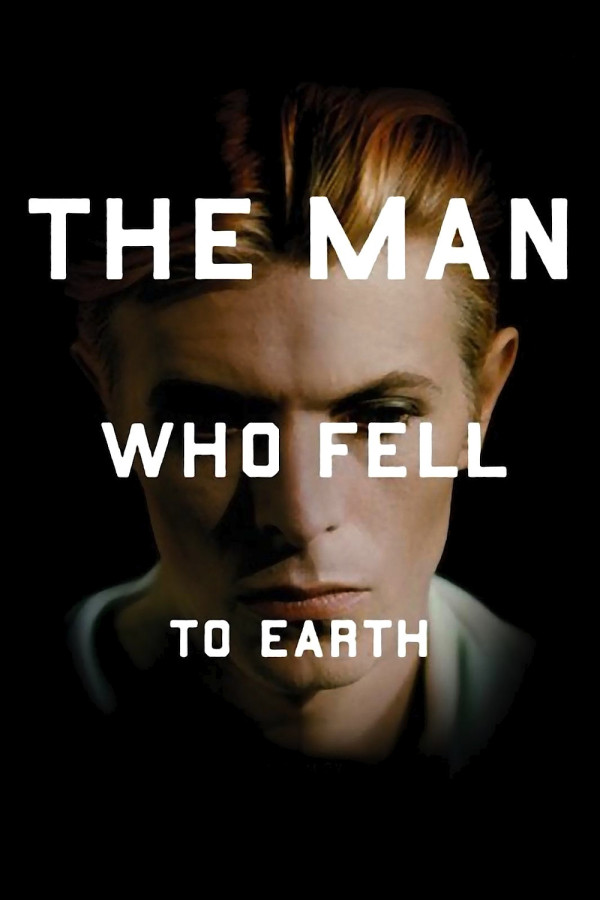
“David Bowie died peacefully today surrounded by his family after a courageous 18 month battle with cancer. While many of you will share in this loss, we ask that you respect the family’s privacy during their time of grief.” — via @DavidBowieReal
BY STEVE VOLK To many of us, Bowie was a bit like the sun or moon, always there, and coming to grips with the fact of his death will be incredibly difficult. I was 13 when Let’s Dance was released, a kid in a Pittsburgh suburb, still unable to access anything of the world to which my parents didn’t give me access. One of my older sisters bought the album for me, bringing it home from the mall where she worked. I remember mostly that the world seemed so much bigger after I heard it. Then I got some greatest hits collection, which included “Heroes.”
I vividly remember the first time I heard that song, thinking that it was going over my head, but that it was beautiful just the same, and I wanted to keep listening. Was the song  triumphant? Sad? Desperate? I remember as my own home life turned difficult, the song seemed to buoy me. The “just for one day” phrase was especially powerful, as if fighting my way through to a single good day redeemed everything else. And as I found, it did.
triumphant? Sad? Desperate? I remember as my own home life turned difficult, the song seemed to buoy me. The “just for one day” phrase was especially powerful, as if fighting my way through to a single good day redeemed everything else. And as I found, it did.
I turned out to be something of a music obsessive. But for me Bowie was the artist I always returned to, buying everything, the lesser stuff, juvenalia and bootlegs in part because I wanted to understand how the brilliant stuff was achieved, how he pursued ideas till he’d given up the chase or run them to ground, and I think to understand him as human, as failing, learning and trying like the rest of us. Otherwise, the idea that songs this powerful and dense–packed with possible interpretations–just came out of somebody was too intimidating. I needed to know that it took work.
In the coming days, and far longer, people will go racing to Blackstar, looking for clues that his death was coming. They will find them. A black star is a star in a state of slow collapse, a dying star. On “Dollar Days” he sings “I’m dying to… Fool them all again and again,” and — despite what the lyric sheet says — at times he sounds like he’s singing “I’m dying, too.” And then there’s the line from “Lazurus”: “Look up at me, I’m in heaven.” In some ways this is a sucker’s game. Listen to any one of his albums and pretend he died a few days after its release and you’ll find “clues” it was coming. “Bring Me the Disco King” was his last song for a while, during his 10 year break from producing music, and revolved around the cheery refrain, “soon there’ll be nothing left of me/nothing left to release.”
Sure it was coming.
For all of us.
He died in a flurry of creative power, producing a play, Lazarus, off Broadway. The play seemed to close two important loops in his life. He always said he wanted to write for the musical theater, and finally he did. The play also returned him to the character of Thomas Jerome Newton, who he played in the sci-fi classic “The Man Who Fell To Earth.” The play struck me as summational, a tangled and emotionally convincing explanation of why he became an artist in the first place. I’m glad he got to make it. I am also, as everyone else, thunderstruck by the timing. Just as he returned without warning from his 10 year hiatus, dropping “Where Are We Now” on his website, his final exit, too, comes as a surprise. His gift for drama, the theatrical gesture, contrived or accidental, never failed him, even in death.
I hope very much he was aware before his death that the music press was once again falling at his feet. I don’t know that it would have meant much if anything to him, but I’d like to think he knew Blackstar was getting rave reviews. The first time I heard the closing song on this album, “I Can’t Give Everything Away,” the stray harmonica blast that wafts out of the ether drew a sudden, surprising tear to my eye. The snatch of melody it plays is lifted from “A New Career In A New Town,” from Low, an instrumental that perfectly captures in sound the mixture of melancholy good-bye and bright new beginning occasioned by a new job and big move. I hope very much that the song captured his own feelings over the  last many days. Also, it’s worth noting that a couple of reports on the recording of Blackstar stated that there were an additional six or more songs recorded. Lazarus arose from the dead, so perhaps Bowie has some final release in the offing. But there I go, being the fan, wanting more.
last many days. Also, it’s worth noting that a couple of reports on the recording of Blackstar stated that there were an additional six or more songs recorded. Lazarus arose from the dead, so perhaps Bowie has some final release in the offing. But there I go, being the fan, wanting more.
David Bowie is gone, shocking to say. His last round of applause arrived in a New York theater last month, when he took a bow with the cast on the official opening night of Lazarus. I won’t worry about giving anything away at this point, but the play ends with the main protagonist, alien Thomas Newton, dead on the floor of his New York apartment. On a video screen, positioned just behind Newton’s body, the character’s figure takes off upon his death, in a rocket. “This way, or no way, you know I’ll be free,” Bowie sings on the play’s title song, the only song from the play included on Blackstar. “Just like that bluebird. Now ain’t that just like me.”
RELATED: Our Review Of Blackstar
